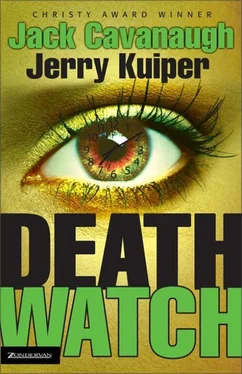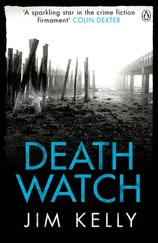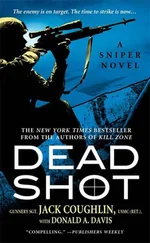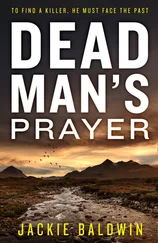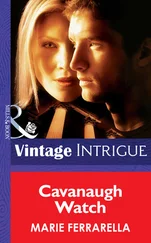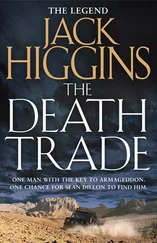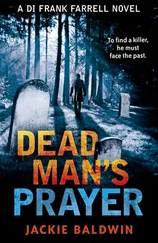But her father didn’t understand news broadcasting. LA’s television market share dwarfed Tulsa’s. If she could make it as a newscaster in LA, she could have her pick of stations anywhere in the nation. Assuming, of course, she could actually get to work.
Sydney cranked.down the driver-side window of her ten-year-old beige station wagon and stuck her head out to see what was causing the delay. The SUV in front of her was too wide. All she got for her effort was a lungful of exhaust and a handful of stares, first at her, then at her Volvo.
It was a Southern California thing.
The Volvo seemed like a good idea when she bought it used two years ago in Iowa. She’d remembered hearing someone say Volvos were good, reliable cars. Solid. Safe. What really attracted her to it was the number of heaters—front, back, under the seats. Now, with Canadian cold fronts several state lines away, it didn’t seem like such a big deal. She’d only used the heater twice since moving to California. Out here, people equated style with status, and a beige Volvo station wagon was better suited to a retired Swedish farmer than an ambitious young female reporter for a major television station.
She checked her watch.
The meeting would start in five minutes. Even if traffic started moving right now, by the time she parked the car and walked back to the station she’d still be late.
Helen would save the assignment for her, wouldn’t she? How could she fault her for gridlock?
A voice played in Sydney’s head.
“There are no excuses in journalism.”
Professor Puckett. Journalism 101.
“When you’re handed an assignment, you get it done. Period. No excuses. If it’s getting a statement, you dog the source until you get the quote. If it’s on location, you get there even if you have to grow wings and fly.”
Puckett was old school, tough as leather, with an impressive broadcasting pedigree.
He told his class of journalist wannabes, “The word deadline was coined at Andersonville, a notorious Confederate prisoner-of-war camp. A peripheral wire stretched around the entire facility. Any prisoner crossing that wire was shot on sight. In journalism, time is the wire. Cross it and you’re dead.”
Sydney glanced anxiously around. In the movies this was where the hero jumps out of the car and makes a run for it. But then, the films where that happened were usually shot in New York. This was LA, where everyone owned a car. Jumping out and making a run for it wasn’t an option.
So what were her options?
She threw the transmission into park. With the engine still running, she climbed out of the car in search of options. A number of other drivers were doing the same thing. They didn’t venture far, ready to jump back behind the wheel if traffic started moving. Some drivers stood in the open door, using the floorboard as a stepping stool to get a better look.
With a mountainous black Cadillac SUV blocking her view, Sydney had no choice but to venture away from her vehicle. What she saw wasn’t encouraging.
The cause of the traffic tangle was a hazy blue Ford Taurus. Its hood mangled, facing oncoming traffic, it blocked the intersection of Sunset and Vine. Steam rose from under its hood as the car gave up the ghost. The back half of a policeman protruded from the driver-side window as he assisted the victim or victims. In the distance an approaching siren wailed.
Three black-and-white cruisers surrounded the wreck at odd angles, their driver-side doors standing open. Police milled about the scene, thumbs hooked in their belts, showing no concern for the long line of stranded commuters. It was obvious Sydney wasn’t going anywhere anytime soon. Nobody was.
A smile surprised Sydney, prompted by the first happy thought she’d had all morning. Nobody was going anywhere! Nobody. If she was stuck in traffic, so was everyone else at the station. Nobody was going to make it to the meeting on time.
Then, as quickly as the smile appeared, it faded.
Standing on the far side of the intersection, preparing to cross the street, was Helen Gordon. An attractive middle-aged African American woman, impeccably dressed in a stylish gray business suit, Helen surveyed the accident scene with a seasoned eye, then checked her watch.
Sydney didn’t have to be clairvoyant to know what Helen was thinking. Five minutes to make it to the meeting. Plenty of time.
Sydney slapped the top of a white Acura in frustration.
The driver-side window of the Acura rolled down. A balding man stuck his head out. “Hey, lady! It’s a car, not a drum.”
“Sorry.”
The man looked Sydney up and down. His anger gave way to a wolfish grin. “No problem, sweetheart. How ‘bout if you join me? We can discuss payment for damages.”
Without comment, Sydney retreated to her car, more desperate than ever. How was she going to convince Helen she had what it took to be a professional political correspondent if she couldn’t even make it to a morning meeting?
For the last year and a half Sydney had been paying her dues, which meant taking assignments that ran the gamut from cute to sensational. Her first west coast on-the-air report was about a mother cat that suckled an orphan puppy along with her litter of seven kittens. Sydney’s second story covered the birth of a baby hippopotamus at the Los Angeles Zoo.
The station liked her coverage of the stories well enough. Sol Rosenthal, the station producer, complimented her, saying she had a knack for cute—hardly the kind of comment a serious reporter wants to hear from a producer.
Part businessman, part carnival barker, Rosenthal was a corporate suit in his late twenties. Industry execs considered him to be a real comer. This was his third television station and from all appearances, he wouldn’t be with KSMJ for long. Sol Rosenthal was network bound. Thin, energetic, a fast talker, there was no newsman in him. For Sol Rosenthal, exposure was king, and the way to court success was through increased ratings.
“This’ll make a splash!” he cried at one assignment meeting. Sol was always looking for ways to make a splash. “How about a story on all those impotence ads? You know, the ones with that coach and the other one with that Red Cross woman’s husband.”
“Mike Ditka. Former Chicago Bears coach,” Grant Forsythe said. “Ditka advertises Levitra. Former Senator Bob Dole does the Viagra commercials.”
Forsythe was the prime-time evening news coanchor, the face of KSMJ for fifteen years. He loved nothing better than to show off his fifteen years of accumulated news trivia.
Rosenthal leaned forward, elbows on the table. “Isn’t there one more?”
“Cialis,” Grant said, his tone smug.
“Yeah, that’s it. And they don’t call it impotence anymore, do they? What’s it called now?”
“Erectile dysfunction.” Grant beamed like a sixth-grade schoolboy.
“Here’s my idea. We have Sydney do the story.”
Helen Gordon frowned. “Why Sydney?”
“Because it’s sweeps week, Helen. A hot blonde doing a story on erectile dysfunction? It’ll make a splash.”
During sweeps week broadcasters used the viewership numbers to set local advertising rates for the rest of the year. Competition between stations was fierce.
Sweeps or no sweeps, Sydney didn’t want to do the story. She thought Rosenthal’s idea was in bad taste. Privately she told Helen as much and tried to back out of the assignment.
Helen didn’t buy it.
“We all get assignments we don’t like,” the veteran newswoman snapped. “So stop whining and just do your job.”
Helen liked Sydney.
Helen Gordon had risen through the ranks from intern to reporter to newscaster to assignment editor and knew firsthand broadcasting was a tough business, especially for a woman. It was obvious she liked Sydney too much to coddle her.
Читать дальше
